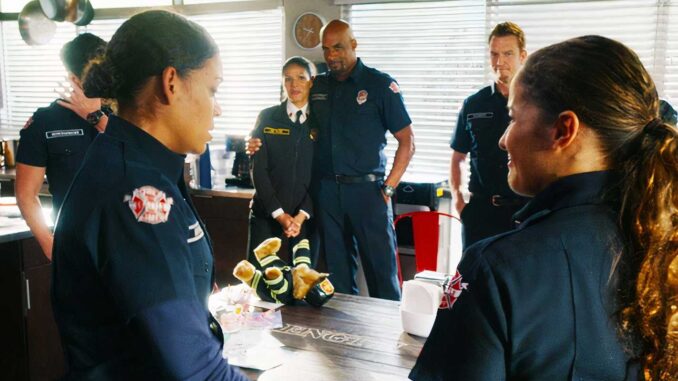
The siren's call of Station 19, a vibrant ensemble of Seattle firefighters navigating the blazing infernos of their city and the tumultuous heartbreaks of their personal lives, echoed for seven seasons. Its cancellation, halting the narrative before a potential eighth chapter could unfurl, left a lingering ember of disappointment among its devoted fanbase. The "real reason" Station 19 Season 8 was never made isn't a singular, dramatic explosion but rather a slow burn, a confluence of evolving industry pressures, economic realities, and a network's strategic pivot – a narrative as complex and often heartbreaking as the very stories the show itself told.
At its core, the demise of Station 19 can be attributed to the inexorable pull of ratings and economics in an increasingly fragmented television landscape. While the show enjoyed a loyal following and often performed respectably in the live viewership numbers, particularly when paired with its progenitor, Grey's Anatomy, the trend was clear: linear television viewership was in a steady decline. As the seasons progressed, the slow, almost imperceptible erosion of its live audience, coupled with the rising tide of production costs, began to paint a challenging picture. Television series, especially those with large ensemble casts, intricate action sequences, and a need for realistic firefighting apparatus, become progressively more expensive with each passing year. Actors' salaries increase, production values demand more, and the general cost of simply putting a show on air escalates. For a network like ABC, constantly looking at the cost-per-episode calculus versus the advertising revenue generated, Station 19, despite its critical praise for tackling relevant social issues and its strong character development, likely moved into a less favorable financial quadrant. It became a well-loved but increasingly costly venture without the explosive growth in viewership to justify the burgeoning price tag.
Beyond the raw numbers, a significant factor was ABC's broader strategic refocusing. In recent years, networks have openly discussed a desire to "refresh" their brands, to make "bold, exciting choices" and to streamline their programming slate. This often translates to a tacit decision to shed older, established, and therefore more expensive shows in favor of developing new, potentially cheaper intellectual properties that could capture fresh demographics or offer higher upside in the burgeoning streaming wars. Station 19, a cornerstone of Shondaland's Thursday night lineup, while still popular, represented an older guard. As ABC looked to the future, seeking to innovate and compete with the glut of content across various platforms, shows like Station 19 became, through no fault of their own, sacrificial lambs on the altar of network reinvention. It wasn't about the show being "bad" or creatively bankrupt; it was about its perceived fit within a new, leaner, and more forward-looking brand identity that ABC was attempting to cultivate. The network was moving away from a reliance on long-running, character-driven dramas to a more diverse, and perhaps less serialized, offering.
Finally, there's the unique paradox of being a spin-off. Station 19 undeniably benefited from its connection to Grey's Anatomy, inheriting an initial audience and leveraging the established Shondaland universe. However, this umbilical cord, while a source of strength, also subtly limited its individual narrative and market potential. While it eventually found its own voice and thematic independence, often excelling at poignant social commentary, it never fully detached itself from the gravitational pull of Grey's. For a network aiming for true "newness," a spin-off, no matter how successful, might still be perceived as an extension of an existing, and aging, brand. The decision to conclude Station 19 could also be seen as a desire to eventually simplify the Shondaland universe on ABC, perhaps hinting at a future where even Grey's Anatomy itself, the queen of medical dramas, might someday face its own eventual conclusion.
In essence, the absence of Station 19 Season 8 is a poignant illustration of the harsh, intricate realities of the modern television industry. It wasn't a failure of creative vision, nor a betrayal of its loyal fanbase by its creators. Instead, it was a practical business decision, a cold calculation made under the immense pressure of declining linear viewership, escalating costs, and a network's strategic imperative to refresh its image in a landscape undergoing tectonic shifts. The firehouse may have closed its doors, but the heat and heart of Station 19's legacy, like the best stories, will undoubtedly continue to burn brightly in the memories of those who loved it.